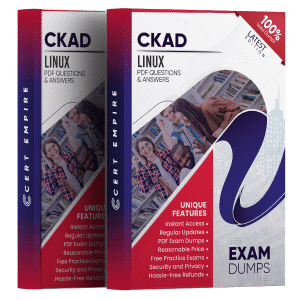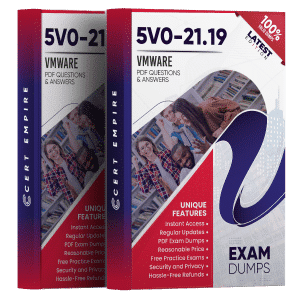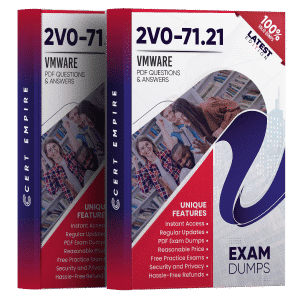Certified Kubernetes Administrator (CKA) Exam Complete Guide
The Certified Kubernetes Administrator (CKA) is the flagship certification from the Cloud Native Computing Foundation (CNCF) for demonstrating practical expertise in deploying, managing, and troubleshooting Kubernetes clusters. It is a performance-based test lasting two hours in which candidates work directly on live Kubernetes clusters to solve real-world tasks. The exam measures deep understanding of Kubernetes architecture, cluster operations, security, and troubleshooting across production environments.
Who should take this exam
The CKA exam is designed for IT professionals who need proven, hands-on Kubernetes skills. Typical candidates include:
-
DevOps engineers and site reliability engineers managing containerized workloads and cloud-native applications.
-
System administrators moving from traditional virtualization to container orchestration.
-
Platform or cloud engineers responsible for production-grade Kubernetes clusters.
-
Developers and architects who design microservices and must understand operational aspects of Kubernetes.
The exam suits professionals with at least six months of real Kubernetes experience or those who have actively worked with container-based infrastructures.
Prerequisites and recommendations
-
Official prerequisites: None. CNCF does not require prior certifications.
-
Practical recommendations:
-
A solid grasp of Linux administration and networking.
-
Familiarity with Docker or container fundamentals.
-
Experience creating and managing Kubernetes objects like pods, deployments, and services.
-
Comfort using command-line tools and YAML configuration files.
-
One year of professional experience in DevOps, cloud engineering, or a related field is strongly suggested.
-
Optional helpful certifications: Linux Foundation Certified System Administrator (LFCS) or Certified Kubernetes Application Developer (CKAD).
-
Exam objectives and domains
The CKA exam measures competence across these key domains:
| Domain | Approximate Weight |
|---|---|
| Cluster Architecture, Installation & Configuration | 25% |
| Workloads & Scheduling | 15% |
| Services & Networking | 20% |
| Storage | 10% |
| Troubleshooting | 30% |
Objective details by domain
Cluster Architecture, Installation & Configuration
-
Design and build Kubernetes clusters from scratch.
-
Install and configure Kubernetes masters and worker nodes.
-
Manage role-based access control (RBAC) and certificates.
-
Configure etcd and maintain cluster components.
-
Perform cluster upgrades and manage backup/restore procedures.
Workloads & Scheduling
-
Deploy and configure pods, deployments, and replica sets.
-
Use ConfigMaps and Secrets for application configuration.
-
Control scheduling using node selectors, taints, and tolerations.
-
Implement resource limits, quotas, and horizontal pod autoscaling.
Services & Networking
-
Configure ClusterIP, NodePort, and LoadBalancer services.
-
Implement network policies to control traffic flow.
-
Set up CoreDNS and troubleshoot service discovery.
-
Manage ingress controllers and external access.
Storage
-
Provision persistent volumes (PVs) and persistent volume claims (PVCs).
-
Configure dynamic volume provisioning.
-
Implement storage classes and troubleshoot storage issues.
Troubleshooting
-
Diagnose cluster and node failures.
-
Debug application deployments and networking.
-
Recover from misconfigurations or crashed control plane components.
-
Investigate security or performance-related incidents.
What changed in this version
The current CKA reflects the latest stable Kubernetes releases. Key updates include:
-
Emphasis on Kubernetes 1.27+ features and deprecation of older APIs.
-
Greater focus on cluster security, RBAC, and network policies.
-
Refreshed troubleshooting tasks aligned with current container runtime interfaces.
-
Adjusted weight: troubleshooting now holds the largest share (about 30%), while some installation topics were streamlined.
Registration and scheduling
-
Create a CNCF account and purchase the CKA exam.
-
Receive a voucher valid for 12 months to schedule your test.
-
Select a convenient date and time for the online, proctored exam.
-
Rescheduling is allowed if done within the CNCF policy period.
Pricing and vouchers
-
Standard price is USD 395, which includes one free retake.
-
Regional pricing varies based on taxes and currency exchange.
-
Students and members of nonprofit or military organizations may access discounted rates through approved programs.
-
Occasional promotional codes or bundle offers (exam plus training course) provide additional savings.
Policies you should know
-
You must present a government-issued ID and run a system compatibility check.
-
A quiet, private room is mandatory; no one else can enter during the exam.
-
The test is closed-book except for the official Kubernetes documentation, which is allowed online.
-
You may retake the exam once at no additional cost if you fail the first attempt within the voucher period.
Scoring and results
-
The exam is graded on a 0–100 scale, with 66 or higher required to pass.
-
Each question carries a specific weight, and partial credit is awarded for tasks completed correctly.
-
Results and a detailed score report are emailed within 24 to 36 hours, highlighting strengths and weaknesses by domain.
Exam day and test experience
-
The CKA is 100% online and proctored. There is no in-person option.
-
Before the exam, you will verify your ID and perform a webcam room scan.
-
You may keep only a clear water bottle and must stay on camera at all times.
-
The environment provides a terminal with a preconfigured Kubernetes cluster and access to official documentation.
-
Plan about 3–4 minutes per task. Use bookmarks and search effectively to save time.
-
You can flag questions to revisit and adjust your approach as the timer counts down.
Study plan and resources
A structured approach helps you cover all domains systematically.
For beginners (16–20 weeks)
-
Weeks 1–4: Learn Kubernetes fundamentals, core objects, and YAML configuration.
-
Weeks 5–8: Build and manage clusters on cloud providers or local environments like Minikube or Kind.
-
Weeks 9–12: Deep dive into networking, security, and storage.
-
Weeks 13–16: Focus on troubleshooting and real-world scenarios.
-
Weeks 17–20: Take repeated mock exams and review weak areas.
For experienced professionals (8–10 weeks)
-
Weeks 1–2: Review cluster architecture and installation methods.
-
Weeks 3–5: Strengthen troubleshooting and advanced networking skills.
-
Weeks 6–8: Complete practice exams and timed labs.
-
Final weeks: Address weak domains and rehearse under exam conditions.
Helpful resources include Kubernetes official documentation, CNCF training courses, hands-on labs, and reputable practice tests.
Certification validity and renewal
-
The CKA certification is valid for three years.
-
To renew, pass the current CKA exam again or earn a higher CNCF certification such as Certified Kubernetes Security Specialist (CKS) before expiration.
Career outcomes
A CKA credential demonstrates strong Kubernetes administration abilities, opening doors to a range of roles. Below are common positions and approximate annual salary ranges in USD (figures vary by region and company size):
| Job Role | Typical Salary Range |
|---|---|
| Kubernetes Administrator | 90,000 – 130,000 |
| DevOps Engineer | 95,000 – 140,000 |
| Site Reliability Engineer | 100,000 – 150,000 |
| Cloud Infrastructure Engineer | 105,000 – 155,000 |
| Platform or Automation Engineer | 110,000 – 160,000 |
Professionals apply their skills to deploy clusters, maintain uptime, implement security, and optimize performance for production workloads.
Related or next-step certifications
-
Certified Kubernetes Security Specialist (CKS): Focuses on cluster hardening and secure application deployment.
-
Certified Kubernetes Application Developer (CKAD): Ideal for developers building and deploying containerized applications.
-
Kubernetes and Cloud Native Security Associate (KCSA): For those expanding into broader cloud security domains.
These certifications can be pursued after gaining additional operational experience or if you want to specialize in security or application development.
How this exam compares to similar certifications
Compared to CKAD, CKA places stronger emphasis on cluster deployment, security, and troubleshooting rather than application design. In contrast to Red Hat OpenShift Administration exams, CKA is vendor-neutral and applies to any Kubernetes distribution, offering broader portability. It is more challenging than entry-level Docker or container certificates because it requires complex real-time problem solving.
Exam Practice Questions for CKA
Practice questions are not just “extra work”, they simulate the real exam environment, test your understanding, reveal gaps, and build speed and confidence. For the CKA (Certified Kubernetes Administrator) exam, the practical, hands-on nature means that good practice problems must mimic real cluster tasks and failure scenarios. The more realistic and varied your practice question set, the better prepared you are to face surprises on exam day.
What kinds of practice questions should you use
Here are the types / categories of practice questions & tasks you should include:
| Type | Description | Benefit / Purpose |
|---|---|---|
| Lab-style tasks / performance tasks | You execute Kubernetes commands or YAML configurations on a live cluster (or emulator) | Mirrors the real exam format; improves muscle memory and troubleshooting skills |
| Scenario-based questions | You’re given a narrative (e.g. “node X failed, pods not reachable”) and asked for diagnosis & fix steps | Develops real-world thinking, combining multiple domains |
| Multiple-choice & multiple-select | Traditional conceptual questions about architecture, API, RBAC, etc. | Helps reinforce theory, vocabulary, and edge cases |
| Troubleshooting / error diagnosis | Given logs, status, events, or YAML error messages and asked what’s wrong | Boosts your analytical skill under pressure |
| Timed mini-quizzes | Short quizzes with a fixed time (e.g. 5–10 minutes) focused on a domain like networking or storage | Helps you manage time and maintain speed under constraint |
| Mixed-domain challenge sets | Questions that combine cluster operations, security, storage, networking in one scenario | Reflects how real issues often cross multiple domains |
When selecting or designing practice questions, aim for authenticity, diversity, and alignment with the official CKA domains.
How Cert Empire Helps you?
If you’re looking for a robust source of CKA practice questions, Cert Empire offers a repository of real exam-style questions with verified answers and detailed explanations. They aim to replicate the kinds of tasks and scenarios you’ll face in the actual exam environment (including cluster-based questions). Using Cert Empire’s question bank and simulators can help with:
-
Familiarizing yourself with question formats and difficulty
-
Improving speed and accuracy under timed conditions
-
Exposing you to edge-case and less common scenarios (so you’re less surprised on exam day)
-
Allowing you to review correct vs. incorrect answers with detailed reasoning
-
Tracking performance across topics (networking, storage, troubleshooting, etc.) so you can focus future practice
If you plan to incorporate Cert Empire into your study, use it as one tool among many; pair it with live labs, official docs, and weekly mocks to get the best results.
Best practices when using practice questions
-
Don’t jump straight to solutions, try to reason first, then check.
-
Keep a “mistake log”: write down questions you got wrong, why, and correct approach.
-
Simulate exam conditions occasionally: no external tools beyond allowed, strict time limits.
-
Use practice questions to drive weak-area review: if most errors come from networking or storage, loop back to theory and labs there.
-
Revisit previous practice sets after a few weeks, spaced repetition helps retention.
-
Combine practice questions with real cluster labs: after reading through a question, apply it in a sandbox cluster to reinforce.
How is the CKA exam delivered?
The CKA is a remote, performance-based test. You connect to live Kubernetes clusters and perform tasks in a controlled, proctored environment.
Can I use the Kubernetes documentation during the exam?
Yes. Access to the official documentation site is allowed and essential for quickly finding commands and examples.
Is prior DevOps experience mandatory?
No. While helpful, it is not mandatory. A strong Linux background and dedication to lab practice can compensate for limited professional experience.
How many questions are on the exam?
Typically 15–20 performance tasks of varying weight and complexity appear, each testing different aspects of cluster management.
What happens if my internet fails during the test?
The proctor pauses the exam and allows a reconnection window. Persistent outages may require rescheduling within CNCF’s retake policy.
Can I reschedule my exam date?
Yes. As long as you make changes within the allowed timeframe (usually 24 hours or more before the scheduled slot), you can reschedule without penalty.
How do I renew my certification?
Renew by passing the current CKA exam again or by earning an advanced CNCF certification such as CKS within three years of your original pass.
Does passing CKA guarantee a job?
It does not guarantee employment, but it strongly boosts credibility and is recognized by employers worldwide as proof of real Kubernetes skills.
What is the best way to practice?
Build and tear down clusters repeatedly, simulate real outages, and solve tasks using only the command line and official docs to mimic exam conditions.
Is CKA worth it for cloud engineers?
Absolutely. Kubernetes is the foundation of many modern cloud platforms. Holding CKA confirms you can run cloud-native infrastructure at scale.







Hyman Mitchell (verified owner) –
The practice questions in the file give you a realistic idea of what to expect. With this resource i felt confident and ready to tackle the exam special thanks to cert empire.
Rowan (verified owner) –
Cert Empire provides the best quality exam dumps. By using these dumps, I was able to pass my CKA exam, and now I am finally a Certified Kubernetes Administrator (CKA).
Elizabeth (verified owner) –
Cert Empire provides good study material that is well-structured and comprehensive. It covered everything I needed to prepare effectively for my CKA exam.
Gregory (verified owner) –
Available in PDF format, the structured content in the dumps helped me succeed in my exam.
Kayla (verified owner) –
The dumps are carefully crafted by Cert Empire and closely match the exam requirements, making it easy to understand and follow.
Sophia (verified owner) –
I am satisfied with my purchase as the dumps, which claim to be current and up-to-date, are indeed accurate and reflect the latest content.
RRathore (verified owner) –
The CKA materials used subtle highlights for key commands and concepts. Cert Empire’s setup made reviewing terminal commands real straightforward. It helped with quick visual recall, especially when I was prepping in shorter time slots.